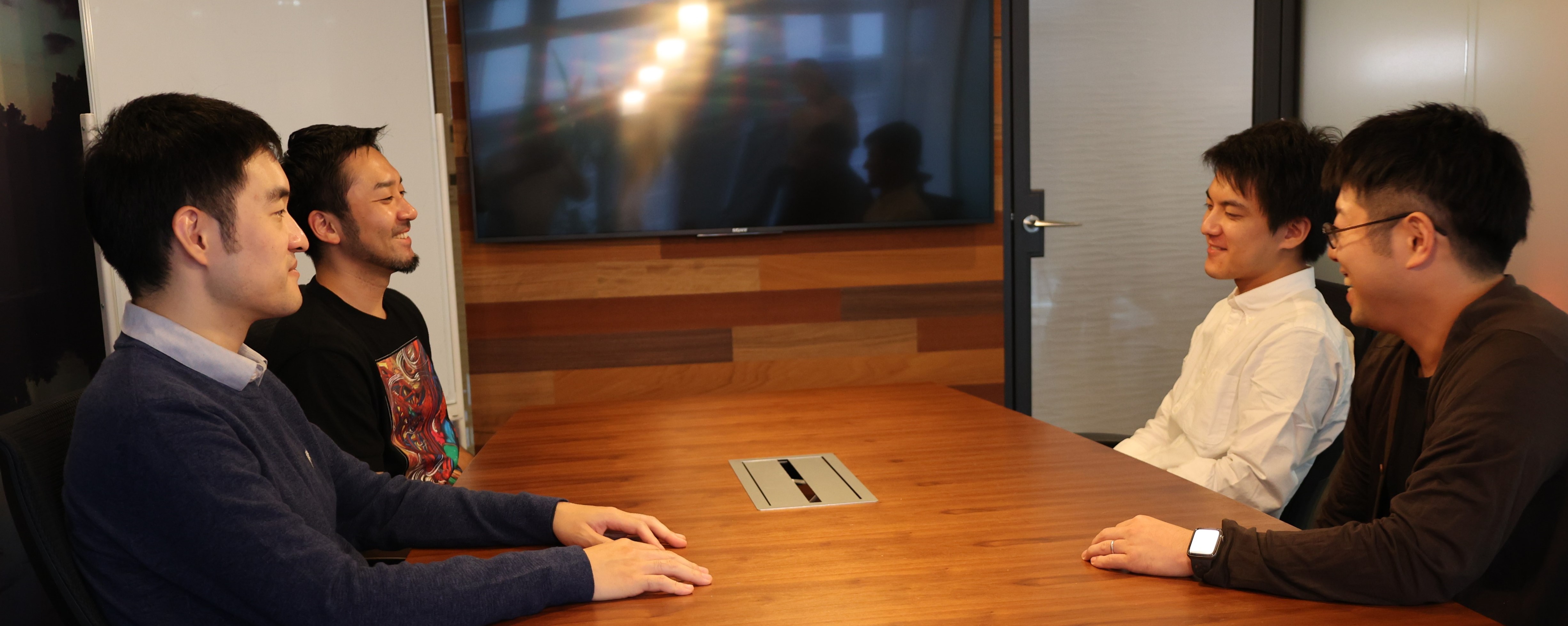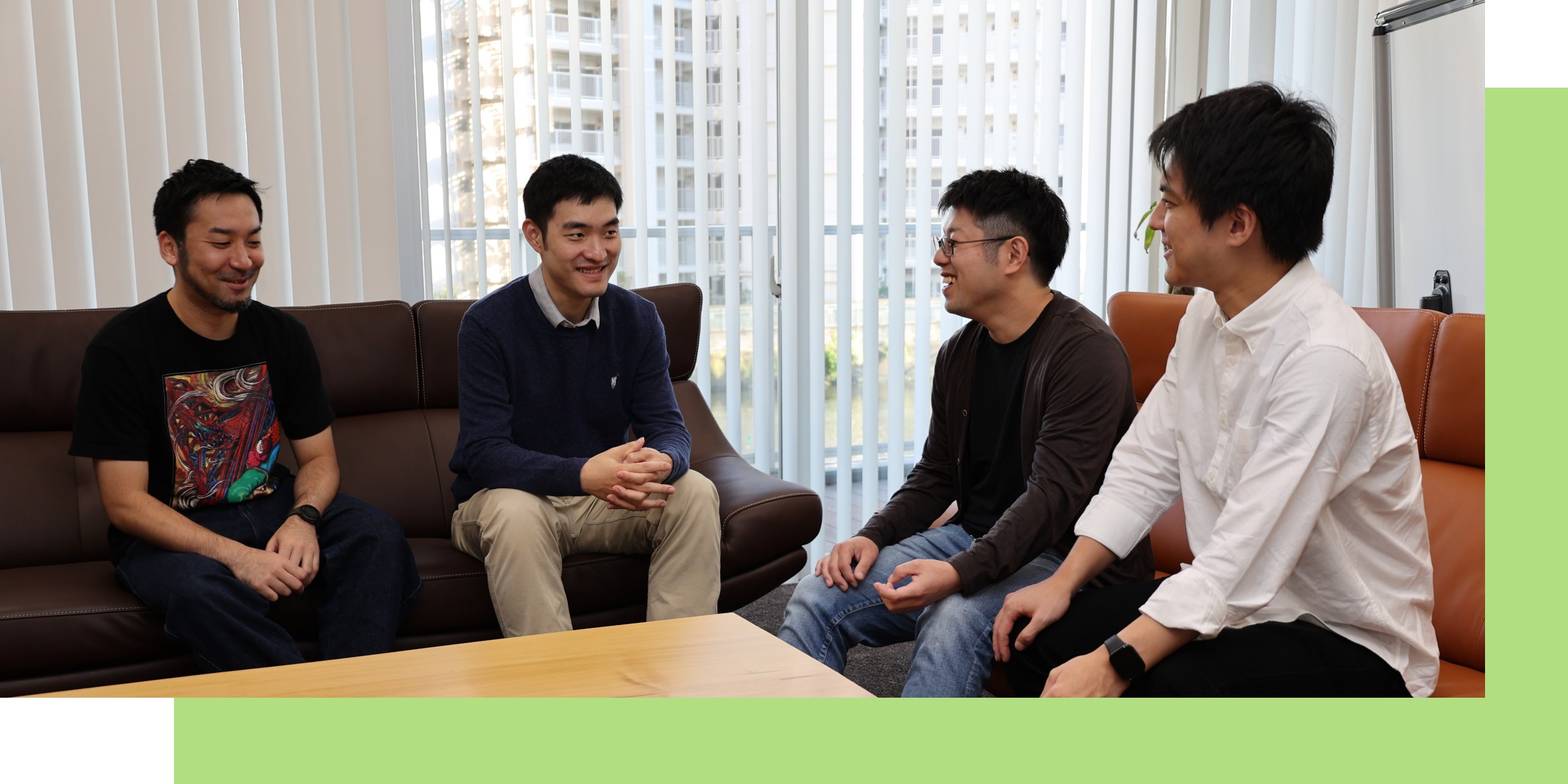
Team RoundtableDevelopment Team Edition
Interview Date: October 2023
To ensure that FLEXSCHE continues to be a product that provides value to the manufacturing industry, FLEXSCHE's engineers are working daily on developing FLEXSCHE's features. We will talk to four up-and-coming young engineers who are responsible for FLEXSCHE's future: Nishi-san, CHO-san, Oka-san, and Miyamoto-san.
What is the work of the development team?
-
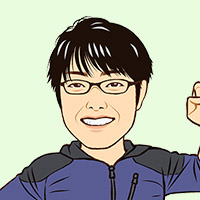 Nishi
Nishi
-
It was so obvious that I wasn't really aware of it, but if I were to put the role of our engineering team at FLEXSCHE into words, it would be "to develop FLEXSCHE into a valuable product." Since FLEXSCHE is a self-developed package product, our main job is inevitably the development of new features for FLEXSCHE. Of course, we also handle bug fixes and other tasks.
-
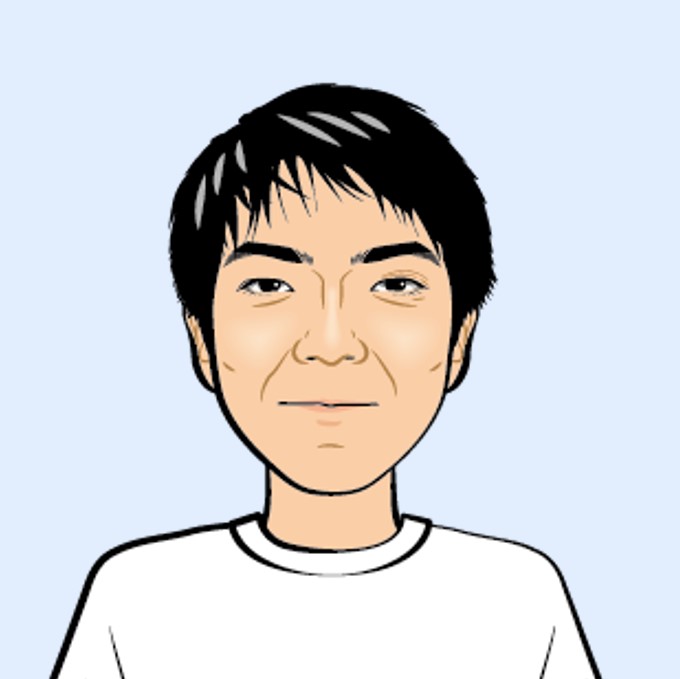 Miyamoto
Miyamoto
-
I learned after joining the company that FLEXSCHE's development is not a waterfall-like development where coding is done according to predetermined specifications. We are doing agile development, discussing various aspects such as whether the features are generic and easy to use as a package software.
-
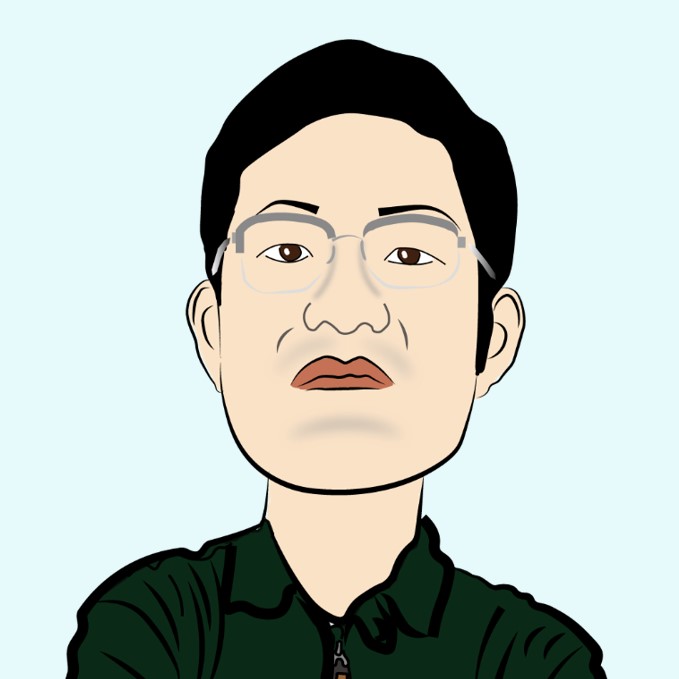 CHO
CHO
-
Each of us has our own area of expertise, and the image of feature development is to look at it vertically from top to bottom.
-
 Nishi
Nishi
-
That's right. We all discuss, but the implementation is left to one person's proposal. However, there are issues such as biased thinking and maintenance becoming too dependent on individuals, so as a team policy, we are working to ensure that everyone can look at all products evenly. Currently, there are parts assigned based on areas of expertise, but I think we will gradually resolve this in the future.
-
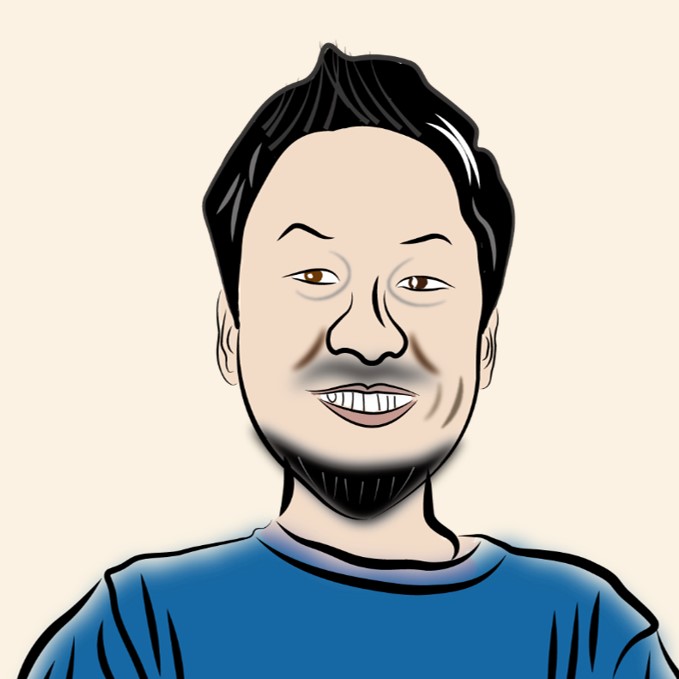 Oka
Oka
-
On the contrary, I don't have a specific area of expertise, so I want a genre where I'm the only strong one. Has it always been the case that everyone has their own area of expertise?
-
 Nishi
Nishi
-
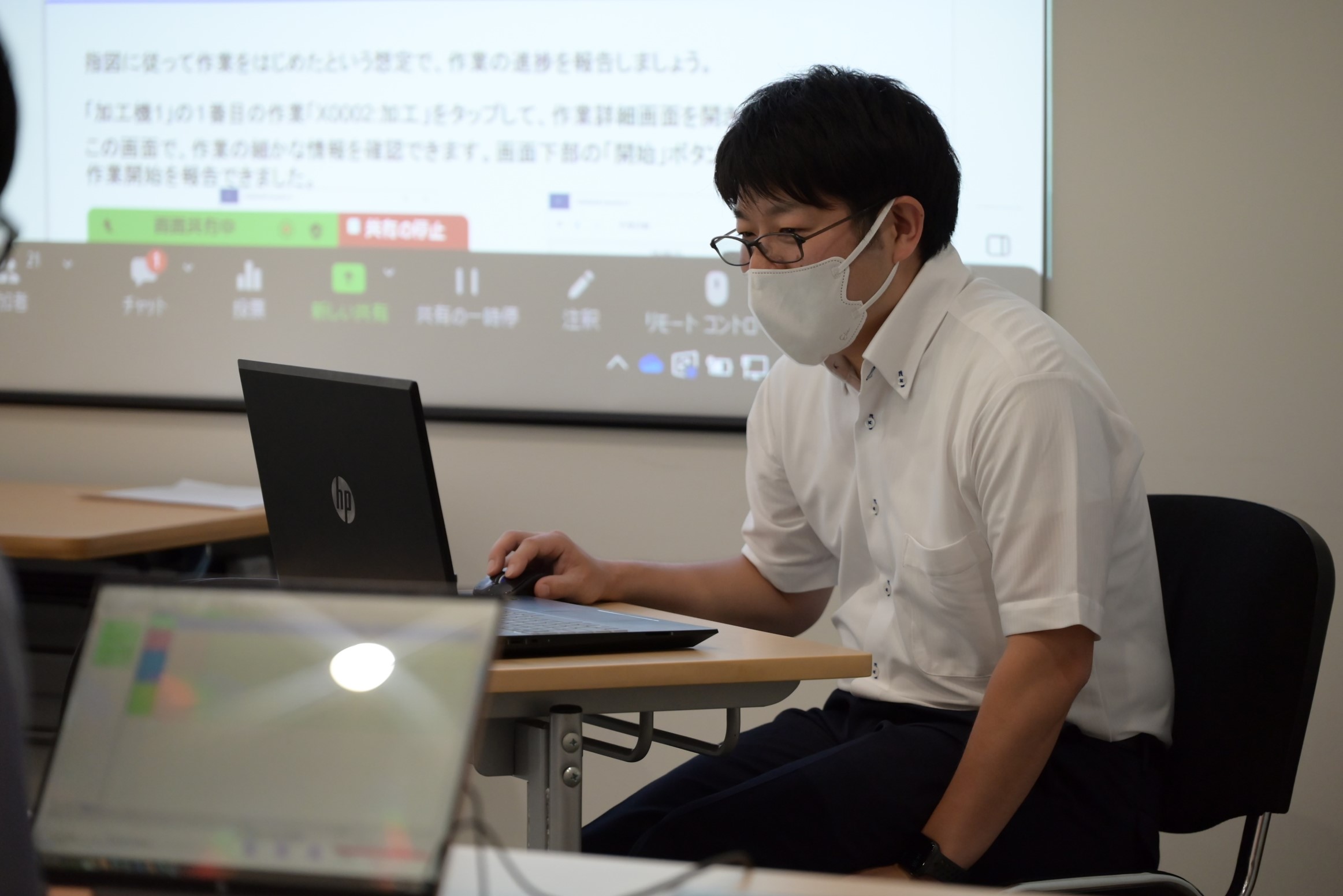 I think five years ago, the work was even more dependent on individuals. At that time, there were only a few people, and besides me, there were only veteran engineers. With the current members joining, knowledge sharing has progressed significantly, and I feel that the range each person can handle has expanded. Additionally, recently, we frequently hold FLEXSCHE study sessions and workshops for users and partners, and the development team has also become involved in such activities, so I think the scope has broadened beyond just development.
I think five years ago, the work was even more dependent on individuals. At that time, there were only a few people, and besides me, there were only veteran engineers. With the current members joining, knowledge sharing has progressed significantly, and I feel that the range each person can handle has expanded. Additionally, recently, we frequently hold FLEXSCHE study sessions and workshops for users and partners, and the development team has also become involved in such activities, so I think the scope has broadened beyond just development.
-
 Miyamoto
Miyamoto
-
In support tasks such as mailing lists and OpenDay, we also collaborate with the Customer Success Team to address technically deep issues, don't we?
-
 Oka
Oka
-
In support tasks and study sessions, we interact with users and partners who actually use FLEXSCHE, so we get direct and vivid feedback, which provides a lot of insights and is an important activity. It often leads to new features in development.
What was the path to FLEXSCHE?
-
 Nishi
Nishi
-
By the way, Oka-san, what was your path to joining FLEXSCHE?
-
 Oka
Oka
-
I've changed jobs a few times, but in my previous job, I worked as a temporary employee at a telecommunications company managing smartphone MVNOs. I was in a department that centralized administrative management within the company, in a position where I created management tools using Excel macros.
-
 Miyamoto
Miyamoto
-
It sounds like a very stable company, but were there any dissatisfactions?
-
 Oka
Oka
-
The environment was very white-collar, but it wasn't particularly a place where I could learn from others. I was mostly tasked with modifying existing Excel tools or researching and creating new tools when requested, so I felt I couldn't expect any further skill development. I always thought I'd like to move to a better company if I found one.
-
 Nishi
Nishi
-
Why did you choose FLEXSCHE?
-
 Oka
Oka
-
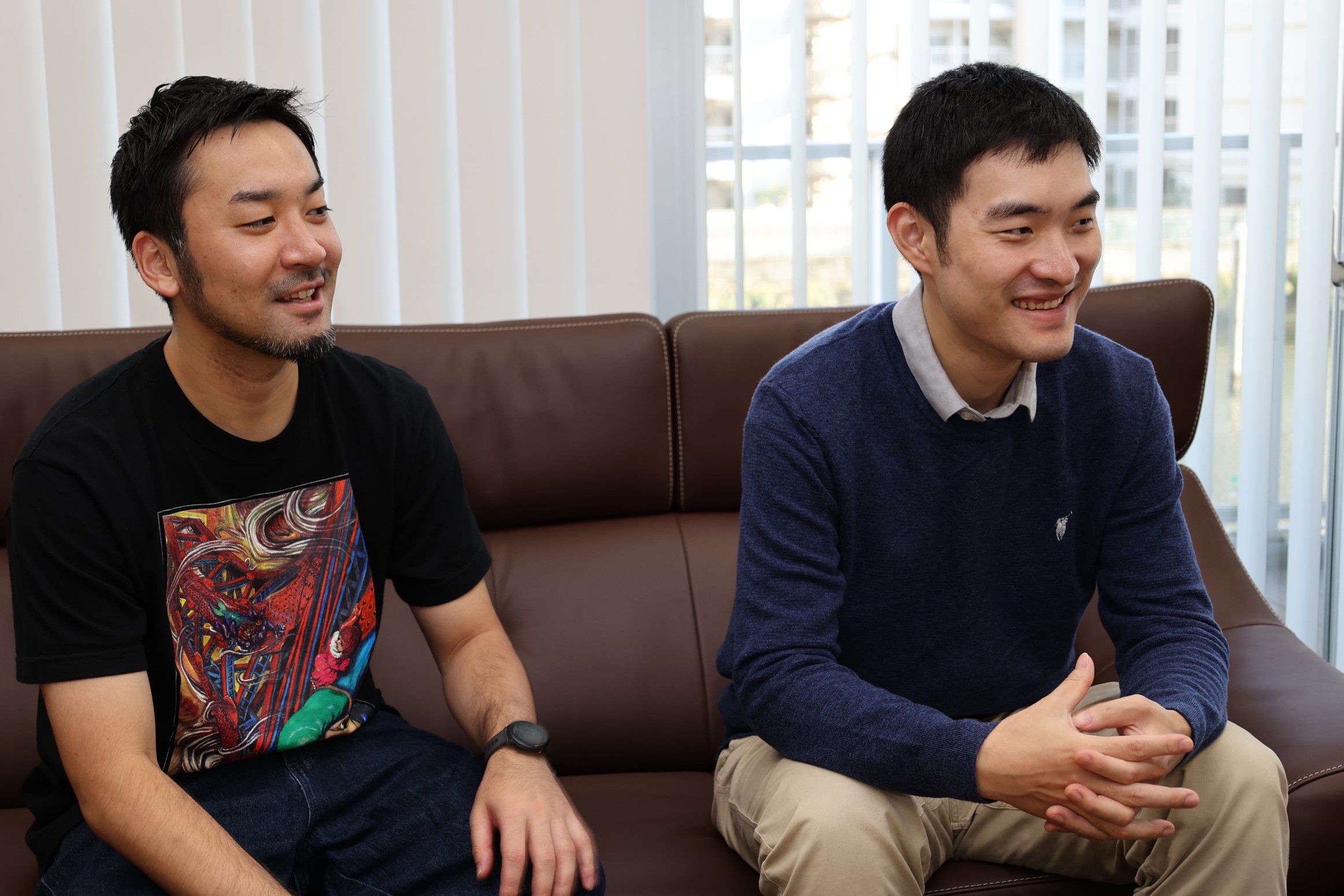 Initially, it was one of several potential job change destinations, and I thought I'd go to whichever I got accepted to. I took a casual interview with FLEXSCHE with a light-hearted attitude, but then the questions started coming at me intensely. I thought it would be more of a casual chat since it was called a casual interview, but the enthusiasm from the questions was overwhelming, and I got the impression that it seemed like an interesting company. I was invited to the next step, went for another interview, and since I was accepted, I decided to join.
Initially, it was one of several potential job change destinations, and I thought I'd go to whichever I got accepted to. I took a casual interview with FLEXSCHE with a light-hearted attitude, but then the questions started coming at me intensely. I thought it would be more of a casual chat since it was called a casual interview, but the enthusiasm from the questions was overwhelming, and I got the impression that it seemed like an interesting company. I was invited to the next step, went for another interview, and since I was accepted, I decided to join.
-
 Nishi
Nishi
-
"A high-energy casual interview" sounds very much like FLEXSCHE. How about you, CHO?
-
 CHO
CHO
-
After graduating from a university in Shanghai, I went to graduate school in Japan and then got a job in Japan. I had the option to go to the UK at the time of employment, but I felt I could live longer in Japan. The house in Shanghai where my grandparents lived was once a dormitory for a jewelry factory built by Japanese people, so it felt similar to the atmosphere I experienced as a child, and I felt nostalgic. I've always felt a familiarity with Japanese culture since I was in China.
-
 Miyamoto
Miyamoto
-
Did you acquire your engineering skills while in graduate school?
-
 CHO
CHO
-
I took C++ classes during my undergraduate studies, but honestly, the level wasn't very high. Before entering graduate school, I worked part-time at a software development company in Shanghai, where I learned independently by working with software created in C language.
-
 Oka
Oka
-
So you were self-taught, that's impressive. Did you intend to work as an engineer from the start in Japan?
-
 CHO
CHO
-
Yes, I did. I applied to several companies that would hire me as an engineer and received offers from two companies, including FLEXSCHE. I chose FLEXSCHE because I thought I could do interesting work. It seemed like there would be a lot of discretion, so I felt it wouldn't be a job where I just followed orders from above and repeated the same tasks. How about you, Miyamoto?
-
 Miyamoto
Miyamoto
-
The company I worked for was originally a user of FLEXSCHE. It was a company that worked hard to implement it in-house without going through a partner, and I was in a position like a consultant overseeing production management. While working with FLEXSCHE for about three years, I always thought, "This product is great..." It was just when I wanted to try something new, so I thought if I was going to change jobs, I wanted to be involved with a product I liked. When I applied for the job, things progressed smoothly. I even took a coding test!
-
 CHO
CHO
-
I was the one who saw Miyamoto's test. It was clean code.
-
 Miyamoto
Miyamoto
-
CHO, you were watching? It's embarrassing to think about it now. Why did you join FLEXSCHE, Nishi?
-
 Nishi
Nishi
-
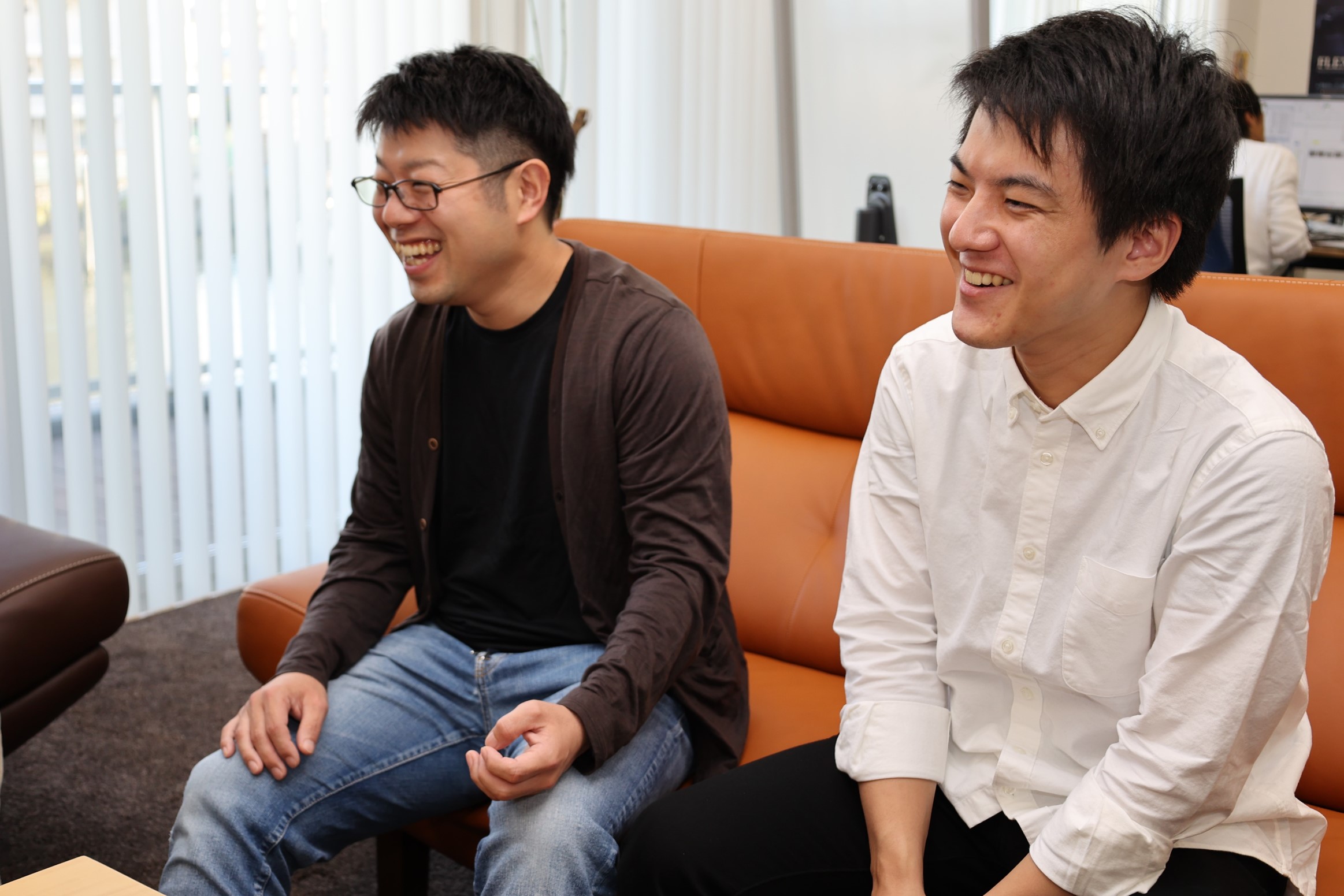 When I was a fourth-year university student, the coach of the badminton club I was in at the time was Sakida, who is now a senior at the company. When I was taking a break from school and wandering around, we talked about "What are you going to do next?" and I was encouraged to try the recruitment interview since they were hiring.
When I was a fourth-year university student, the coach of the badminton club I was in at the time was Sakida, who is now a senior at the company. When I was taking a break from school and wandering around, we talked about "What are you going to do next?" and I was encouraged to try the recruitment interview since they were hiring.
-
 Miyamoto
Miyamoto
-
Did you originally study programming?
-
 Nishi
Nishi
-
I only used the computer for watching YouTube and Google searches... I heard that the assignment would be decided after joining the company, so I thought I'd take the test first. I didn't take it because I wanted to become an engineer, but because the company seemed interesting.
-
 Miyamoto
Miyamoto
-
The process leading up to joining the company is remarkably different for everyone.
-
 Oka
Oka
-
That's why a diverse group of people gathers.
What is the appeal of FLEXSCHE?
-
 Nishi
Nishi
-
FLEXSCHE is practically my first company, so I don't really know the differences with other companies, but how is FLEXSCHE for those of you who came from other companies?
-
 Miyamoto
Miyamoto
-
It's easy to work here. I changed jobs because I liked both FLEXSCHE and FLEXSCHE. There's definitely a sense of fulfillment. As mentioned earlier, the support work brings us close to the users, so it's gratifying to receive immediate feedback on the features I've developed. Just the other day, I fixed a bug and immediately received a "Thank you!" from the end user. It's only natural to fix bugs, but receiving words of gratitude made me happy. It was worth the rush to respond.
-
 Nishi
Nishi
-
It's also nice that the distance with superiors is close, making communication easy. When I'm troubled, I can immediately consult with my superiors. The openness that makes it easy to consult with superiors and seniors is really helpful for young people.
-
 CHO
CHO
-
It's easy to express your wishes too. When you propose something you want to do, you get a quick response, making it easy to connect to the next action.
-
 Oka
Oka
-
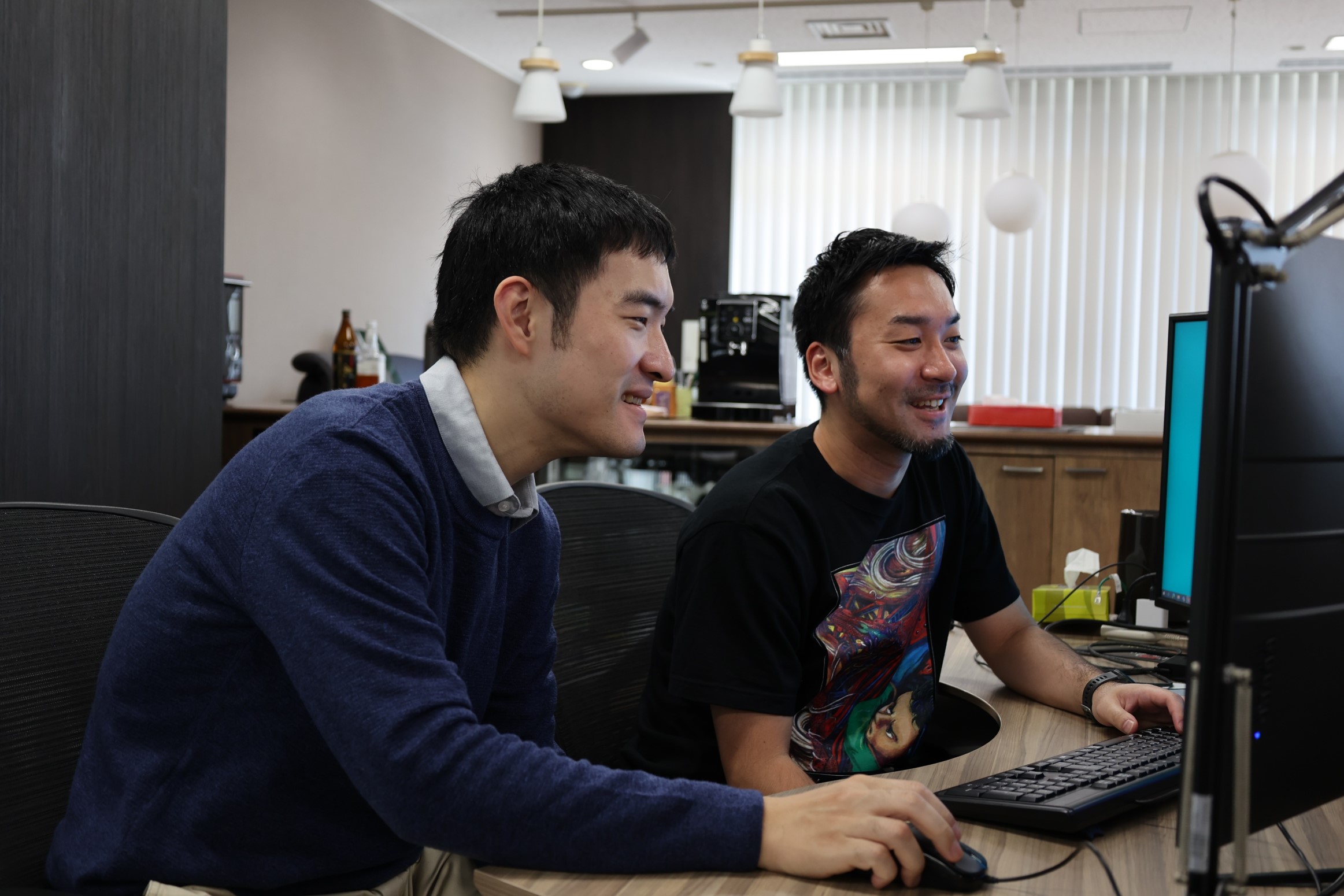 I like that it's easy to balance work and personal life. It's like we can work at our own pace. I've heard stories about staying overnight due to deadlines in contract work, but I've hardly ever worked overtime at FLEXSCHE, and there's no rushing due to deadlines.
I like that it's easy to balance work and personal life. It's like we can work at our own pace. I've heard stories about staying overnight due to deadlines in contract work, but I've hardly ever worked overtime at FLEXSCHE, and there's no rushing due to deadlines.
-
 CHO
CHO
-
That's right. We have version upgrade release dates, so we can control the implementation content ourselves, making it easier. For example, if there are two core items out of five improvement items, we first handle those two thoroughly. The remaining three can be postponed to the next time, or we can think of ways to meet the requirements in a different form... We can proceed with a reasonable schedule. That's also "flexible."
-
 Miyamoto
Miyamoto
-
We can secure private time after work, so many people use their time well by going for a run, playing table tennis, taking lessons, or going out to eat together.
-
 Nishi
Nishi
-
Of course, we need to control our work ourselves, so there's responsibility, but it's very easy to work while facing our work sincerely and responding flexibly at our own pace.
What will the future of FLEXSCHE look like?
-
 Miyamoto
Miyamoto
-
As a fundamental premise, our mission is to continue creating products that are valuable to users.
-
 CHO
CHO
-
The IT field is quick to change trends, so I think we need to keep catching up without falling behind the times. To remain a top runner in the production scheduler industry, we must continue to acquire new technologies.
-
 Nishi
Nishi
-
While catching up with new technologies is important, I think it's necessary to carefully consider and incorporate them, keeping in mind how FLEXSCHE should be.
-
 Miyamoto
Miyamoto
-
I've been working with FLEXSCHE in my previous job, so I know a lot of good things about it, but I also feel it's time to organize the complex features. I think there are probably features that are no longer used or elements that can be replaced by other features, so I want to organize it into a more user-friendly tool for long-term use.
-
 CHO
CHO
-
I thought the same. I want to make FLEXSCHE a more user-friendly and valuable tool. First, to reduce the burden on partners during the implementation process, I want to make it possible for users to implement it without deep scheduler knowledge. I want to evolve the product into a more user-friendly one by skillfully incorporating new technologies.
-
 Oka
Oka
-
For that reason, I believe I need to elevate my own level. To be able to face the next 10 or 20 years with confidence, I want to absorb and inherit a lot of skills and knowledge from veterans now, so that when young people join in the future, I can pass it on properly.
-
 Nishi
Nishi
-
Our actions from now on carry a lot of responsibility. Let's work on development while leveling up, so that many users will continue to use FLEXSCHE 10 or 20 years from now!
